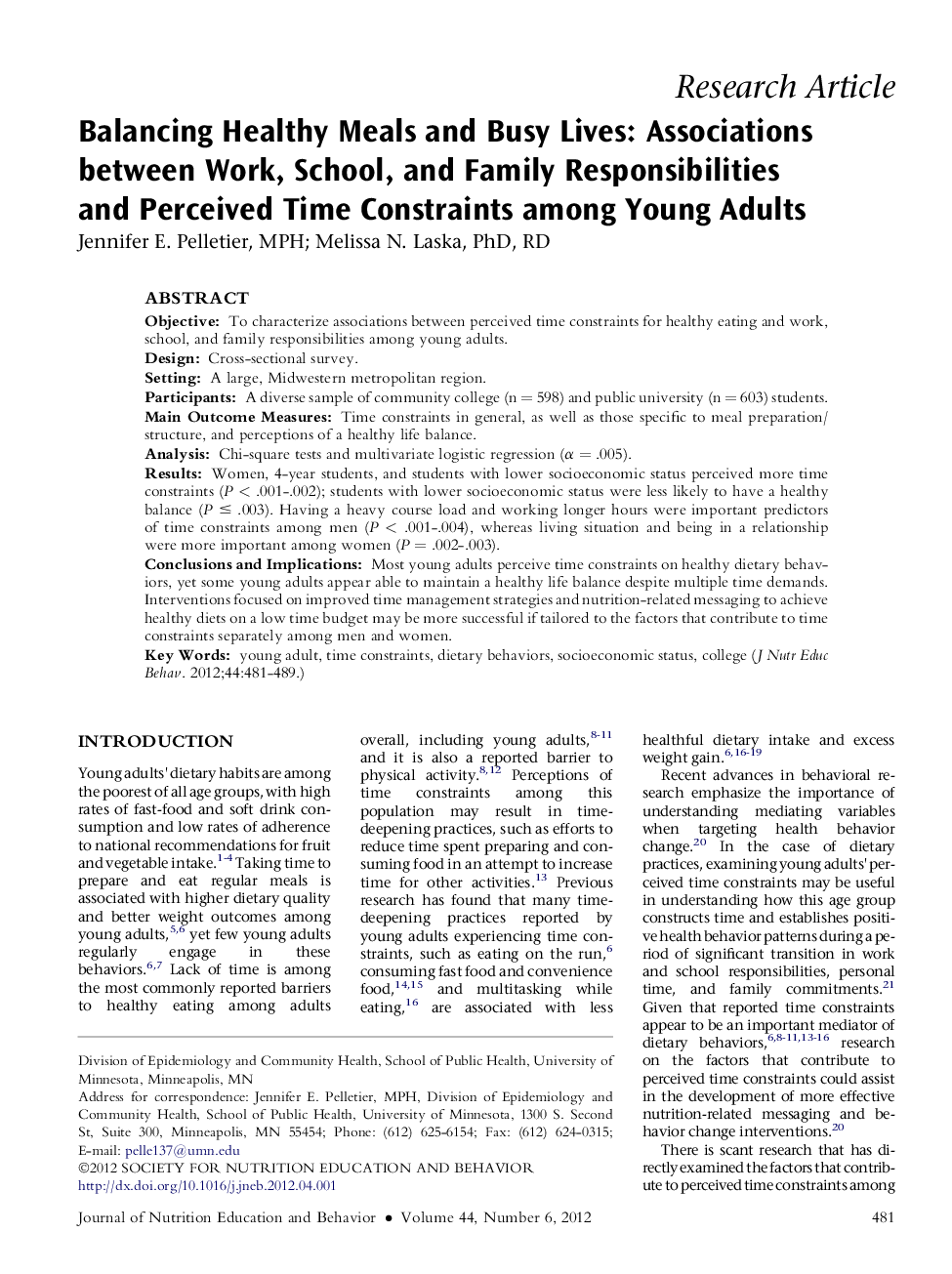| Article ID | Journal | Published Year | Pages | File Type |
|---|---|---|---|---|
| 362175 | Journal of Nutrition Education and Behavior | 2012 | 9 Pages |
ObjectiveTo characterize associations between perceived time constraints for healthy eating and work, school, and family responsibilities among young adults.DesignCross-sectional survey.SettingA large, Midwestern metropolitan region.ParticipantsA diverse sample of community college (n = 598) and public university (n = 603) students.Main Outcome MeasuresTime constraints in general, as well as those specific to meal preparation/structure, and perceptions of a healthy life balance.AnalysisChi-square tests and multivariate logistic regression (α = .005).ResultsWomen, 4-year students, and students with lower socioeconomic status perceived more time constraints (P < .001-.002); students with lower socioeconomic status were less likely to have a healthy balance (P ≤ .003). Having a heavy course load and working longer hours were important predictors of time constraints among men (P < .001-.004), whereas living situation and being in a relationship were more important among women (P = .002-.003).Conclusions and ImplicationsMost young adults perceive time constraints on healthy dietary behaviors, yet some young adults appear able to maintain a healthy life balance despite multiple time demands. Interventions focused on improved time management strategies and nutrition-related messaging to achieve healthy diets on a low time budget may be more successful if tailored to the factors that contribute to time constraints separately among men and women.
